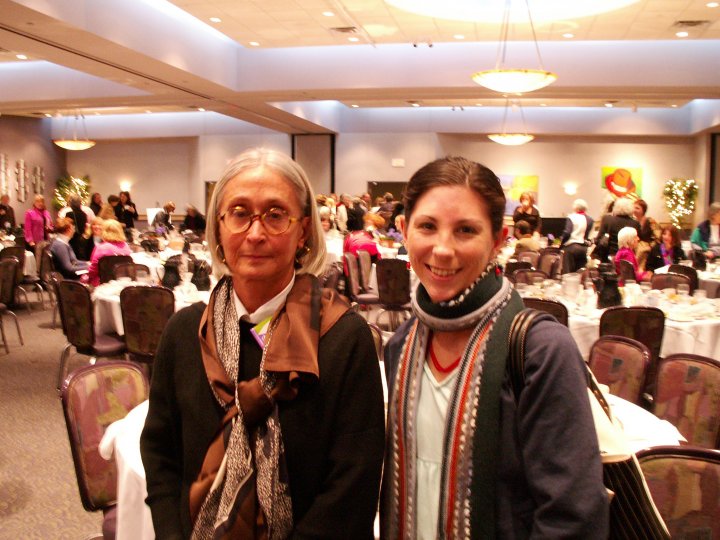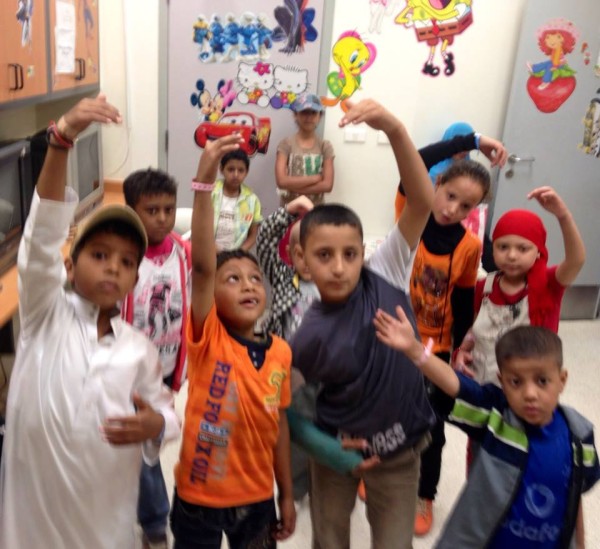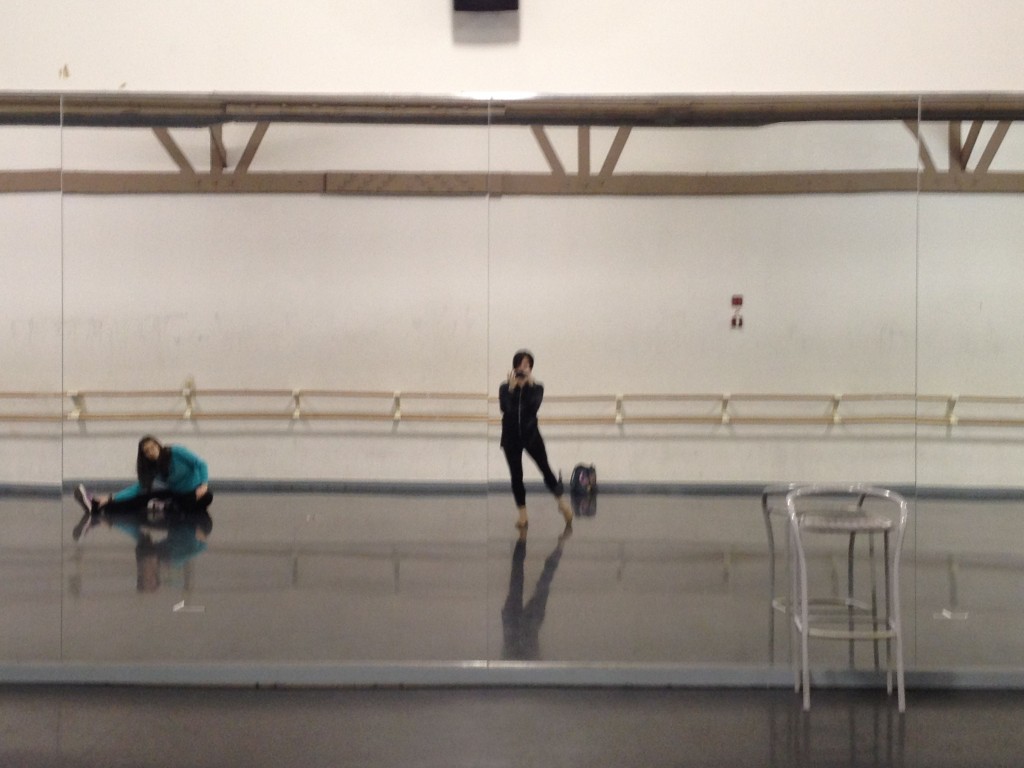Republished by Huffington Post
In 2006, I met the real Twyla Tharp for the second time in my life. The first time was at Jacob’s Pillow where I got the opportunity to perform front row in The One Hundreds. My nickname growing up was “Lil Twyla” and I wanted to be a smart, sassy choreographer/dancer like her. When we met in 2006, we joked, posed back-to-back, and discussed the role of humor and wit in modern dance. Then I brought out the handwritten invitation that she sent to me when I was 16. I never made it to her studio, but getting that letter in my mailbox was one of the greatest moments in my life.

In 2010, I went back to my alma mater, Millikin University, as one of two alumni selected to speak to the then current theatre and dance undergraduate body. I spoke about working with a child with cancer, leading an arts project with juvenile offenders at a community center in East London, and the role of arts in public schools. This speech was before my projects in Bosnia, Egypt, etc.
After my talk, I opened the floor to questions. One of the undergraduates asked me the following, seriously,
“Did you have any sort of breakdown when you gave up on your dreams?”
It took me a moment to process her question. For her and her peers, dance and theatre students focused on training, headshots, audition skills, and getting their big break, my career trajectory as an artist seemed to be a failure, a major detour. I composed myself and explained that I had not given up on my dream; my dream had gotten bigger.

I am dancing, with and for others. I am and will always be a dancer. I take that with me, in the ways I think, develop ideas, collaborate, move. I haven’t been on a professional or semi-professional stage in six years, but I am a dancer. Yup. Because I say so. I am an artist who had decided to join tables off the professional stage.
When it comes to diplomacy, an artist needs to be at the table.
When it comes to the Board of Directors or a School Board, an artist needs to be at the table.
When it comes to sustainability policy, an artist needs to be at the table.
When it comes to facing death, an artist needs to be at the table.
Artists need to be in on…
- Cancer research and treatment
- Conflict prevention, mediation and resolution
- Inter-religious and Inter-cultural dialogue and education
- Military training and homecoming
- Youth development
- Addressing racism and bigotry
- Community development and organizing
- Divided and insular communities
- Hospitals, prisons/detention facilities, corporations, public schools
- City planning, housing and urban development
- Policing and crime prevention
- Parades and festivals
- Education and professional development
- Elder care, day care…
The artistic contribution to these areas can be revolutionary. And I am writing from Cairo, Egypt, so I do not use that word lightly.
The dream is huge.
Scott Walters says in his latest article, A New Education for a New Theatre, “So much of our education in the arts is focused on artistry as a product to be sold in the marketplace. I think we also need to teach young artists that part of their responsibility is to share the process with others. Instead of seeing themselves as special and separate from their community, instead of seeing their role as ‘saying it to their faces’ young artists need to commit to using their talents in service of others.”
I decided to be an artist in the world. I teach dance, I lead dance experiences, I choreograph, I manage and evaluate programs, consult, share, think, write. I’m a professional and a dancer, but you probably wouldn’t call me a professional dancer. I read and join projects relating not to Broadway but to cancer, death, green cemeteries, cultural diplomacy, religion, genocide, geography, databases, divided communities (from Belfast to Bosnia).
And it certainly feels like fulfilling a dream, rather than giving up on one.

Truth is, I never truly pursued the traditional path of a professional dancer heartedly. I was sick of being told what to do, where every part of my body should be at every moment. A career as a professional dancer focuses on one’s faults, not one’s contributions. I have always been a pretty smart dancer, picking up on movement quickly. And I can really move, travel, jump, turn, extend, flip, and perform. I’m a good dance artist. My choreography is accessible and provocative, empowering even a beginner dancer to find a sense of agency and abandon. As a teacher, I help my students learn to rely on themselves for focus and self-correction, find the joy in their own movement, empathize and grow in a community of learners.
But because my legs and back were less than flexible, my plie’ less than adequate, my feet less than articulate, my extensions far from impressive; I was judged but those elements mostly. And they would be a block in any audition, including Cirque du Soleil who flew me to New York to audition nearly a decade ago.
If I had worked hard to improve those faults and had somehow succeeded in an audition, I would have found myself in the back of a music video, donning feathers and fishnets in Vegas, shuffling in a non-singing Broadway ensemble, getting seasick as a cruiseline performer, or being directed to dance someone else’s contemporary vision.
Those directions work for thousands of dancers, including my dear friends. They are respectable and impressive careers. But not for me. A couple months ago I found a title that made sense in my head… social practice dance artist and manager. This works for now.
My former colleague gave me the honor of saying the following, “Shawn is the rare individual that excels at both the visionary and operational work of running a program. She is trained as a dancer and choreographer and is also a consummate, professional manager. She can access the best from both worlds and offers an expansive new model of leadership well suited to the needs of the culturally diverse global economy.” Cynthia Weiss, former Assistant Director at the Center for Community Arts Partnerships, Columbia College Chicago.
And now I’m looking to build a new chapter in my life that incorporates all of this. Maybe the University of Chicago, or UN, or Make-A-Wish, or the British Council, or a city headquarters, a community arts program in some country, revolutionizing dance and theatre education… I am realizing the job hunt can only be truly successful at this point by reaching out, throwing my arms open, and seeing what I find.
No, I never gave up on my dream. Do you agree?